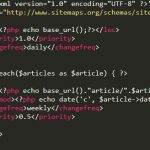In some CodeIgniter projects, connecting to multiple databases to read different data types is required. Fortunately, CodeIgniter provides an easy way to carry this task out.
To use more than one database, you just need to declare a new element under $db multi-dimensional array in config/database.php.
Table of Contents
Define the 2nd database connection
This is what the default database connection looks like:
$db['default'] = array( 'dsn' => '', 'hostname' => 'localhost', 'username' => 'db_user', 'password' => 'db_pass', 'database' => 'db_default', 'dbdriver' => 'mysqli', 'dbprefix' => '', 'pconnect' => FALSE, 'db_debug' => (ENVIRONMENT !== 'production'), 'cache_on' => FALSE, 'cachedir' => '', 'char_set' => 'utf8', 'dbcollat' => 'utf8_general_ci', 'swap_pre' => '', 'encrypt' => FALSE, 'compress' => FALSE, 'stricton' => FALSE, 'failover' => array(), 'save_queries' => TRUE );
Copy and modify those codes to suit the 2nd database’s credential. In my case, the database name is changed to “seconddatabase”, hostname, username, and password are also changed.
$db['seconddatabase'] = array( 'dsn' => '', 'hostname' => '192.168.1.2', 'username' => 'db_user2', 'password' => 'db_pass2', 'database' => 'db_second', 'dbdriver' => 'mysqli', 'dbprefix' => '', 'pconnect' => FALSE, 'db_debug' => (ENVIRONMENT !== 'production'), 'cache_on' => FALSE, 'cachedir' => '', 'char_set' => 'utf8', 'dbcollat' => 'utf8_general_ci', 'swap_pre' => '', 'encrypt' => FALSE, 'compress' => FALSE, 'stricton' => FALSE, 'failover' => array(), 'save_queries' => TRUE );
If you need to have another database connection, the same way is applied.
Using the 2nd database
Now you have 2 databases in the same project. Before building a query, you need to specify which database to use.
$db = $this->load->database(‘seconddatabase’, TRUE); $query = $db->select(‘*’)->from(‘article’)->where($conditions)->order_by(‘time’, ‘DESC’)->get(); $result = $query->result(); //connect to default database and query: it is kept the same like when connecting to only 1 database $query = $this->db->select(‘*’)->from(‘user’)->where($conditions)->order_by(‘id’, ‘DESC’)->get(); $result = $query->result();
Close database
//2nd database $db->close(); //default database $this->db->close();
The ability to connect to multiple databases is an invaluable asset for developers working on complex projects. By connecting to multiple databases, developers can store and access data from each database in a single application. This can help to simplify the development process and make it easier to manage the data.
